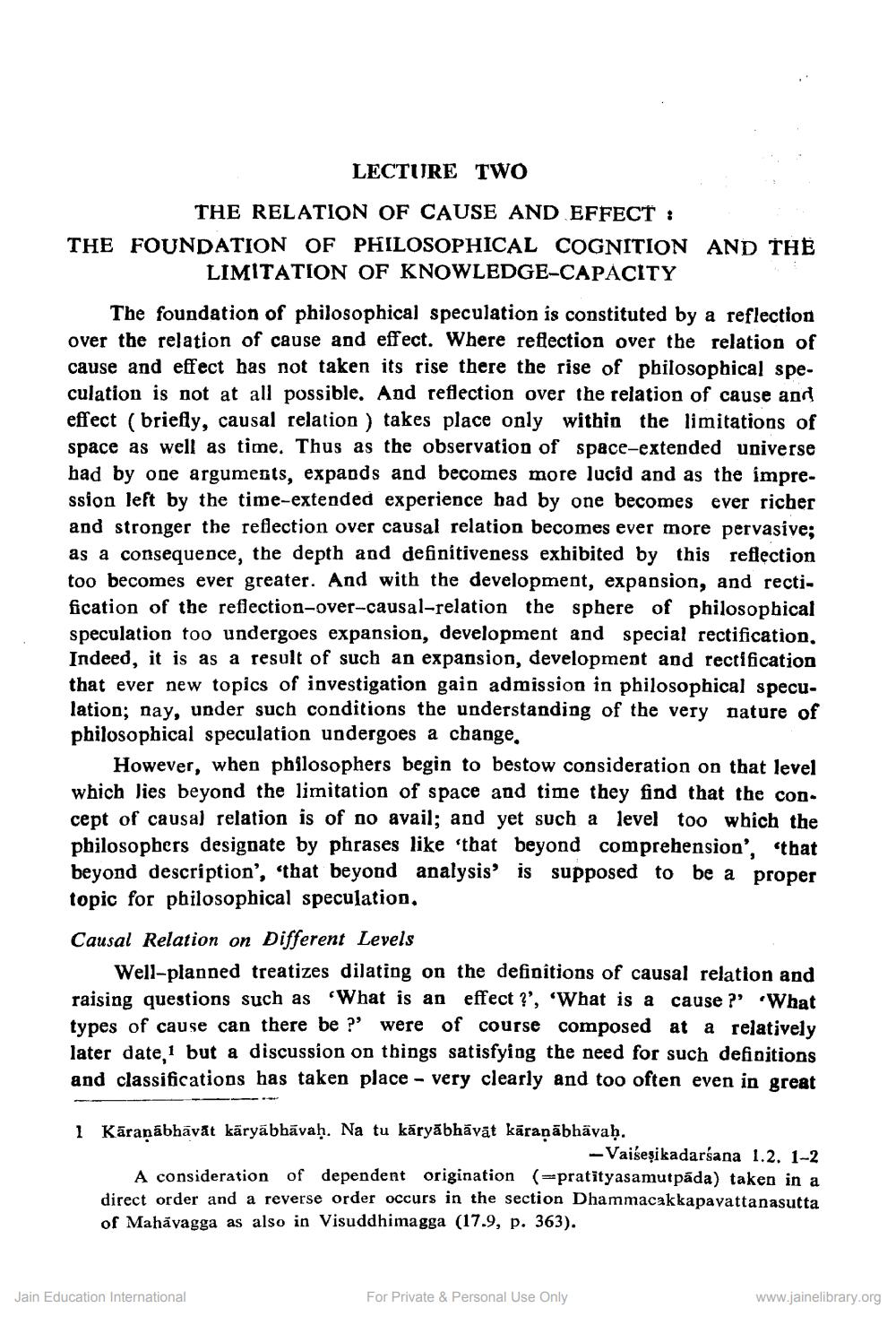________________
LECTURE TWO THE RELATION OF CAUSE AND EFFECT : THE FOUNDATION OF PHILOSOPHICAL COGNITION AND THE
LIMITATION OF KNOWLEDGE-CAPACITY
The foundation of philosophical speculation is constituted by a reflection over the relation of cause and effect. Where reflection over the relation of cause and effect has not taken its rise there the rise of philosophical speculation is not at all possible. And reflection over the relation of cause and effect (briefly, causal relation ) takes place only within the limitations of space as well as time. Thus as the observation of space-extended universe had by one arguments, expands and becomes more lucid and as the impression left by the time-extended experience had by one becomes ever richer and stronger the reflection over causal relation becomes ever more pervasive; as a consequence, the depth and definitiveness exhibited by this reflection too becomes ever greater. And with the development, expansion, and rectification of the reflection-over-causal-relation the sphere of philosophical speculation too undergoes expansion, development and special rectification.
deed, it is as a result of such an expansion, development and rectification that ever new topics of investigation gain admission in philosophical speculation; nay, under such conditions the understanding of the very nature of philosophical speculation undergoes a change.
However, when philosophers begin to bestow consideration on that level which lies beyond the limitation of space and time they find that the con. cept of causal relation is of no avail; and yet such a level too which the philosophers designate by phrases like that beyond comprehension', that beyond description', 'that beyond analysis' is supposed to be a proper topic for philosophical speculation,
Causal Relation on Different Levels
Well-planned treatizes dilating on the definitions of causal relation and raising questions such as "What is an effect ?', 'What is a cause ? What types of cause can there be ?' were of course composed at a relatively later date 1 but a discussion on things satisfying the need for such definitions and classifications has taken place - very clearly and too often even in great
1 Kāranābhāvät kāryābhāvah. Na tu kāryābhāvāt kāranābhāyaḥ.
- Vaišeşi kadarśana 1.2. 1-2 A consideration of dependent origination (pratityasamutpáda) taken in a direct order and a reverse order occurs in the section Dhammacakkapavattanasutta of Mahăvagga as also in Visuddhimagga (17.9, p. 363).
Jain Education International
For Private & Personal Use Only
www.jainelibrary.org




